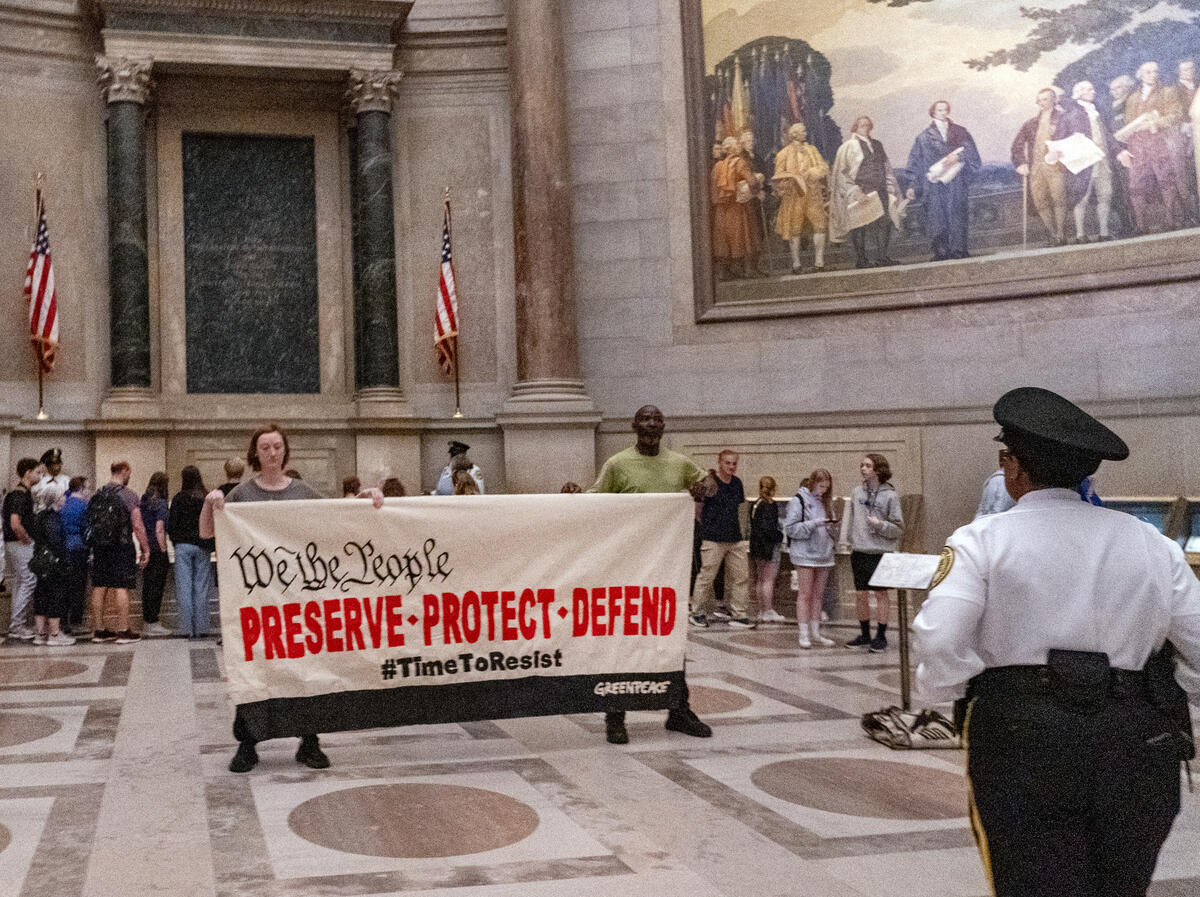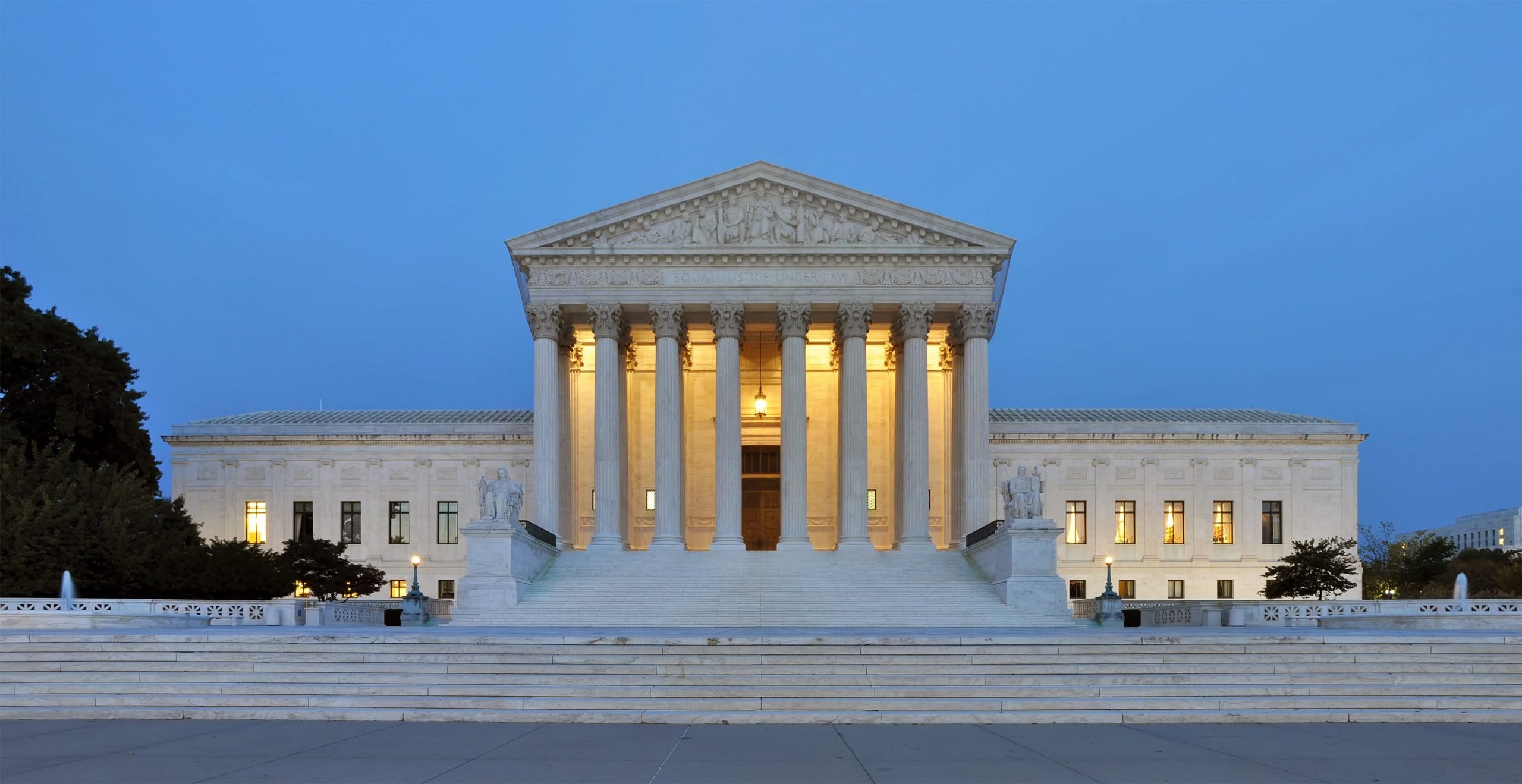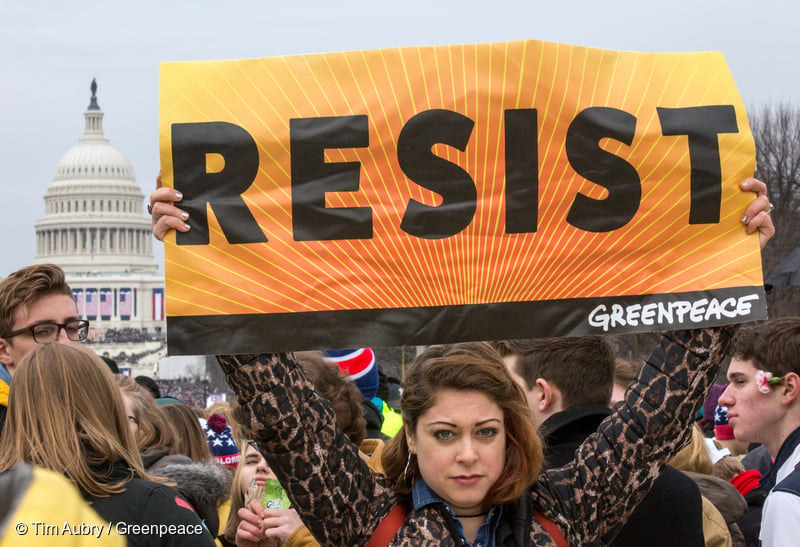The failure of the democratic system in the U.S. will have far reaching consequences for global human rights and efforts to address the urgent and growing climate crisis.
Dr. Folabi Olagbaju, Democracy Campaign Director, Greenpeace USA
On August 6, 1965, President Lyndon Johnson signed the Voting Rights Act, a moment that goes down in American history as finally guaranteeing African Americans the right to vote in a country they fought for. A country that many died for.
There is a saying in my native village: “You don’t miss your water, until your well runs dry.” This adage is appropriate for the way we Americans relate to our democracy. One thing I learned growing up in Nigeria is that once you lose your democracy, it is nearly impossible to get it back. I am afraid that if we do not urgently act to protect American democracy, we will follow the path Nigeria has gone down.
Nigeria was once a promising and thriving democracy but suffered for decades under a succession of military dictatorships. As a result, I had to fight for democracy. In this struggle for representation, I lost a brother to political violence and a dear friend to a police bullet at a peaceful pro-democracy protest. Unfortunately, the country I was once loved and knew is now a democracy in name only.
As I was in Nigeria watching its democratic system fall apart, the U.S. was the model of democracy and what we all aspired to in Nigeria and much of Africa.
I still remember living in a village in Southeast Nigeria in 1984 with no electricity and listening to Jesse Jackson give his “Our time has come” speech at the Democratic National Convention on a car battery-powered radio and marveling at the power and beauty of American democracy!
As I came to learn after moving to America in 1985, one of the greatest privileges of becoming a citizen of the U.S. is the right to vote in a democracy and have your voice heard.
I remember the pride I felt with my first vote as a naturalized citizen during the 1992 presidential election which elected Bill Clinton. I remember taking my kids with me as I cast my vote for our first Black president, Barack Obama, in 2008.
But now, that freedom to vote is under threat and our democracy is at a tipping point. We have witnessed concerted efforts to overturn a free and fair election and violent efforts to prevent a peaceful transition of power. Now, as we approach a critical midterm election, scores of election deniers are vying for key electoral posts that will enable them to subvert future elections.
I don’t want to see the U.S. become a failed democracy like my native country. The failure of the democratic system in the U.S. will have far reaching consequences for global human rights and efforts to address the urgent and growing climate crisis.
I have 3 children. One of the main reasons I do this work is the desire to leave them a better and more just world than the one I came into.
Voting rights are the foundation of all other rights: a living wage, housing, healthcare, clean water and clean air. As with Nigeria, we cannot have a healthy environment without a truly functioning democracy that works for all, especially communities of color who historically bear the heaviest burden of pollution and voter suppression. Only with a truly functioning and representative democracy can we meet the urgency of combatting the climate crisis and ensure a livable planet for our children and grandchildren.



